Have you been able to identify the routines and common detours life constantly throws your way, or do you repeat the same situations but with different people?
How about experiencing a familiar unsteadiness that urges you to be careful, but you’re not sure why, because you’re having fun?
If these questions touched a nerve, keep reading.
We, humans, are creatures of habit, both good and bad. Most of the time, we are unaware of subtle patterns we have established through our mindless actions until it’s too late.
However, developing an understanding of why you do certain things by utilizing reflection journaling is a very effective way to identify why the universe throws the same lessons your way and help you learn what hidden lessons you may have missed so you can elevate to the next level.
- What Is a Reflective Journal?
- Why Is Reflection Journaling Important?
- Benefits of a Reflective Journal
- How to Start a Reflective Journal?
- 5 Reflective Journal Prompts to Get You Started
- How to Keep Your Reflective Journaling Going Strong
- Sample Entries for a Reflective Journal
- You Hold All Your Destiny Cards
- Questions You May Have
What Is a Reflective Journal?
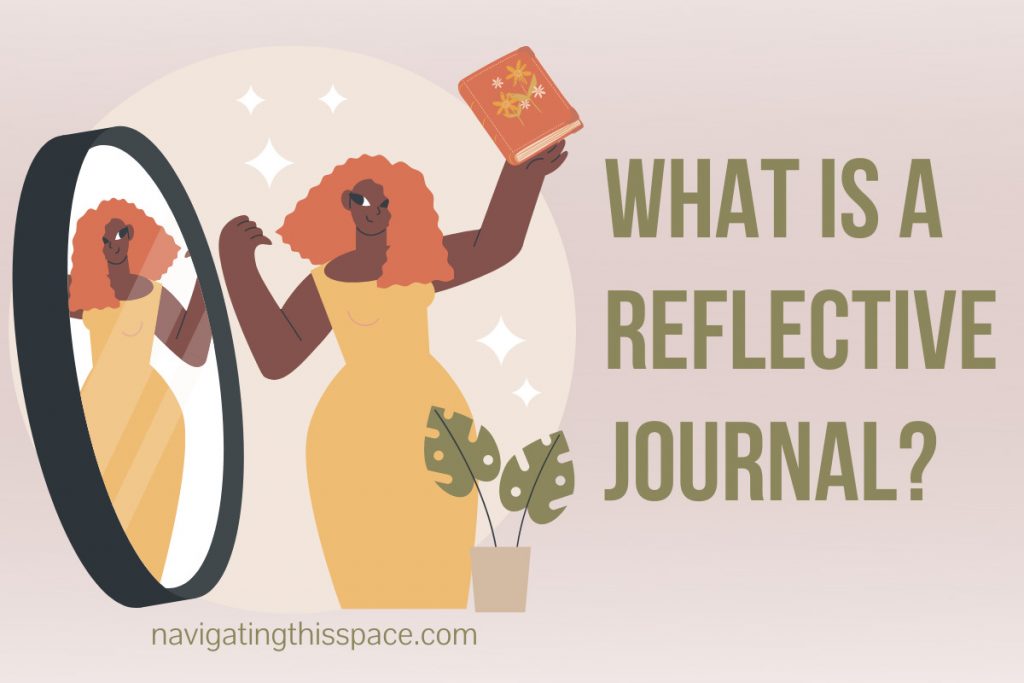
A reflection journal is a place where you can document your daily thoughts and feelings to help you make better decisions, set goals, and live a more fulfilling life.
It is a type of therapeutic writing that allows you to confront your fears, worry less about what others think of you, release bottled-up emotions, and boost your self-confidence by accepting yourself for exactly who you are.
It teaches you through the process of release that you have a lot in your life to be grateful for. Sometimes, most of us have a hard time remembering what we had for lunch a few hours ago. Since we get caught up in mindlessly going through the motions of life, we don’t stop to think about all the wonderful and not so wonderful things we did during the past day or the past week.
I was given this advice when I was about to graduate high school: “Take your time and enjoy these moments in your life, because, after high school, everything passes by in a flash.”
I have never been more grateful for those words because they have come true in my own life. I realized years after the advice was given to me that if I didn’t stop and take time to focus on my present and what I’ve accomplished, then everything would seem like a blur, and I was not happy with that.
Why Is Reflection Journaling Important?
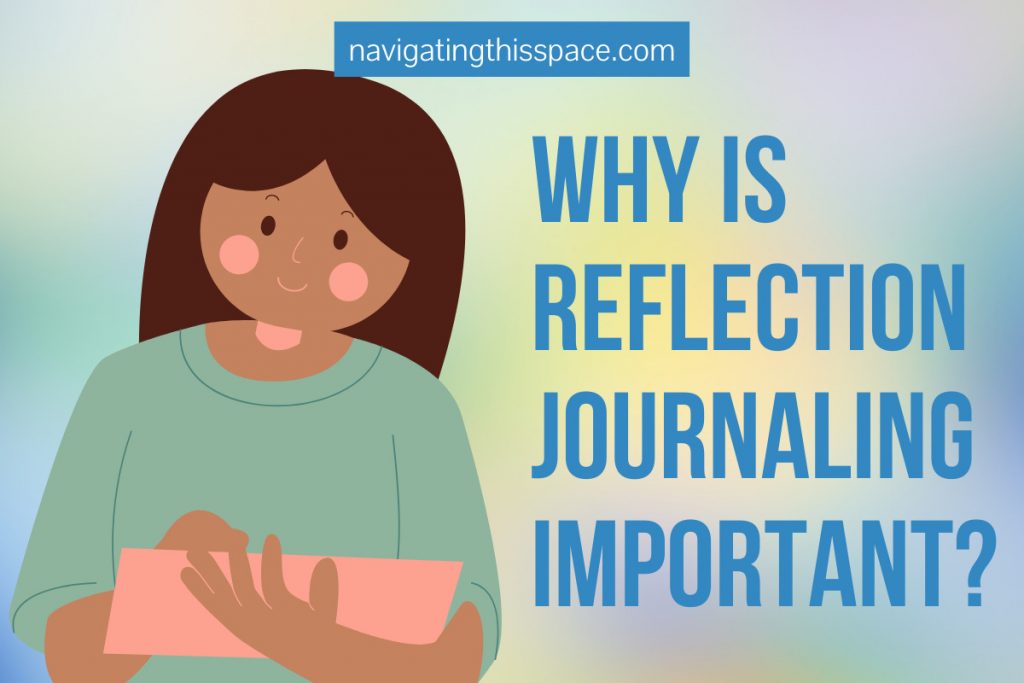
Moving forward in life effortlessly requires you to analyze and learn from your past so that you don’t make the same silly mistakes that will throw you into a loop.
Self-reflection is important for personal growth, and it is a great help in growing into your authentic self.
Why? Self-reflection leads to self-discovery, and the more you learn about yourself, the more confident you’ll become in your abilities. This will lead to making better decisions in all areas of your life.
Keeping a reflective journal allows you to dig deeper into your days, weeks, months, and even years.
Your conscious and unconscious thoughts and actions form the trajectory of your life, and if you’re not reflecting on them, you may find yourself in a place you never wanted to be without understanding how you got there.
Benefits of a Reflective Journal

– Helps you learn more about yourself
– Aids in understanding your thought patterns
– Increases self-awareness and confidence
– Improves optimal decision making
– Teaches you how to solve problems
– Teaches you to be gentle with yourself
In this journal excerpt, Jerry Johnson, a primary teacher, explains why journal writing is important.
“I think in writing … we are questioning ourselves … and I think there is very little precedent set for us to do that. Yet, I think when we look at the whole concept of professional growth, that’s a piece of it. Yes, you have to do it.”
A self-reflective journal offers you the opportunity to have deep conversations with yourself. It gives you the space to develop a deeper understanding through self-exploration to make more empowered choices that align with your life’s purpose.
Suggested article: Why Self Reflection Is Beneficial to Your Personal Growth
How to Start a Reflective Journal?
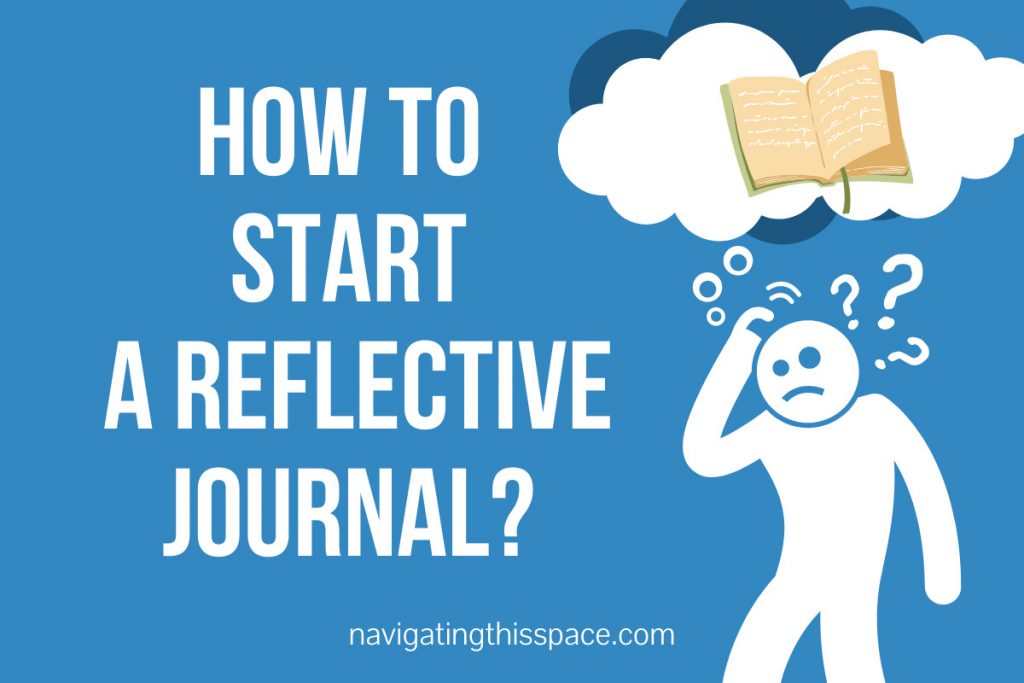
The best way to start is by simply setting aside some time each day or at least a few times a week to sit and write.
It can be as little as 5 minutes to start your journey of better understanding.
Self-exploration should be intriguing. What it shouldn’t be is a burden or frustrating.
You should be excited to write in your reflective journal because it represents your genuine interest in learning about yourself and what makes you tick and that in itself is a dedication to self-care.
If you’re thinking you have nothing to write about, start by brainstorming a list of reflective journal prompts that you can refer to when you’re feeling stuck.
Your life is full of eventful details; you just have to pay closer attention to the things happening to you and around you.
Suggested article: The Five Minute Journal for Beginners: How to Write Every Day!
5 Reflective Journal Prompts to Get You Started
- What are my thoughts on the day’s events?
- What were my highs and lows for the day?
- What did I learn today — either about myself or something else entirely unrelated to today specifically?
- What is one situation where I could have handled things differently or better, today?
- Who was my favorite person whom I interacted with today, and why were they my favorite person of the day (or yesterday)?
Suggested article: 30 Intriguing Journal Prompts for Self-Reflection
How to Keep Your Reflective Journaling Going Strong
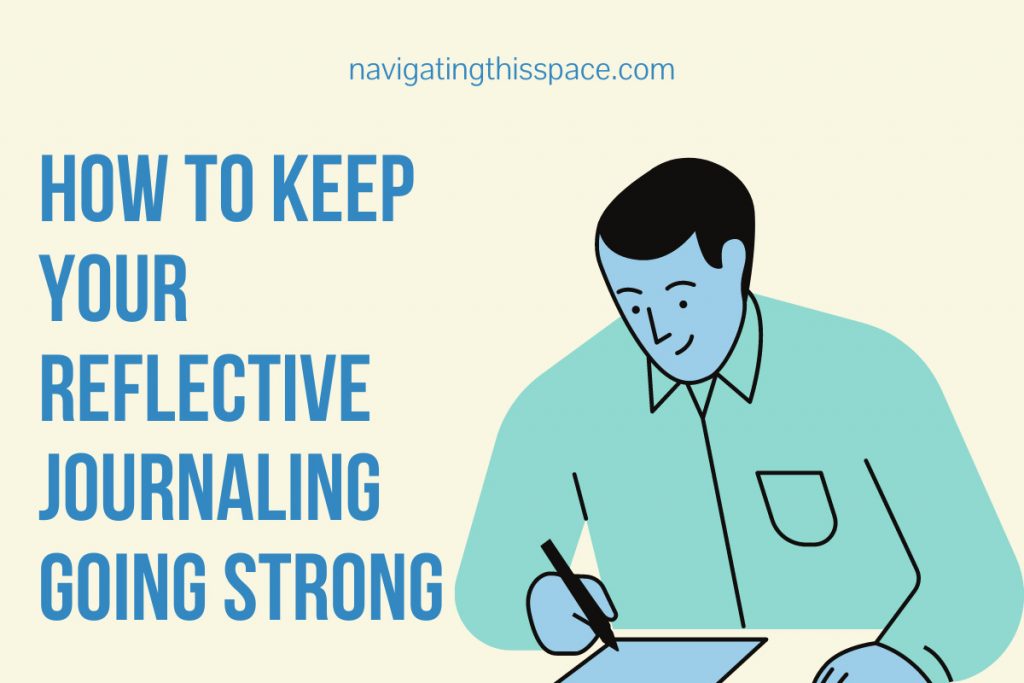
We are a reflection of what we choose to see and do in this world.
I choose to remember the good moments because they bring me joy and provide motivation to continue my life’s journey.
The not-so-good moments teach me valuable life lessons, and I am grateful for them because they have made me wiser.
A reflective journal challenges you to keep a positive outlook on life. Think about it; if you grab your journal and all you write are complaints, what you despise, and how you wish things were different, guess what?
You will be miserable because all you are doing is focusing on the negative.
A reflective journal should make you feel good, and, most importantly, it should make you think about your actions.
Life isn’t all peaches and cream, and sometimes, your earliest childhood memory is one of disappointment. But this life is your life and you are responsible for how it progresses.
Use your reflective journal as a self-discovery journal to figure out why something bothers you to the point of you complaining and how you can change your mindset, so you can avoid or fix those triggers in the future.
Suggested article: How To Develop A Healthy And Positive Mindset
When you’re feeling down, take out your reflective journal and write.
When you’re feeling great, grab your journal and write.
When you’re confused and not sure how to move forward when facing a particular dilemma, indulge in some self-reflection time to brainstorm some action plans.
Make going through your day mentally a habit, and document your thoughts in your reflective journal.
You’ll be surprised by how much better you’ll feel when you get everything that’s pent up inside of you out of your head and onto paper.
I believe that writing things down helps create a better picture of a difficult situation because you can see it from a different perspective when it’s in front of you, staring back at you in words instead of just a muddled mess of emotions in your head.
There’s no wrong way to reflective journaling. As long as you’re being honest with yourself and are making an effort to better understand your thoughts and emotions you are on the right track.
The more reflective journaling becomes a part of your life, the better understanding you’ll have to start identifying those common routines and detours the universe will throw your way when an important life lesson is missed.
Stay focused when you write, but also don’t be scared to follow a thought process that might present itself for you to analyze. It may present you with the opportunity to identify the root cause of a toxic habit that’s deterring you from reaching your goal.
Indulge in reflection at least once per week or if that’s too much for you to handle, try every two weeks. It’s a good practice to process and understand things as soon as they happen, so the details are still fresh in your mind. But I understand that some people need time to mull things over before they can make any sense of them.
The most important thing is to be reflective regularly, so find what works for you and stick with it.
Find the method that suits you best by researching prompts you can use or by making up your own questions. As a self-booster, you can write in your gratitude journal after you’ve done a deep dive reflective session to remind yourself that you’re doing the best you can, you’re making progress, and you have a lot to be grateful for.
Suggested article: How to Start a Goals and Gratitude Journal
Sample Entries for a Reflective Journal
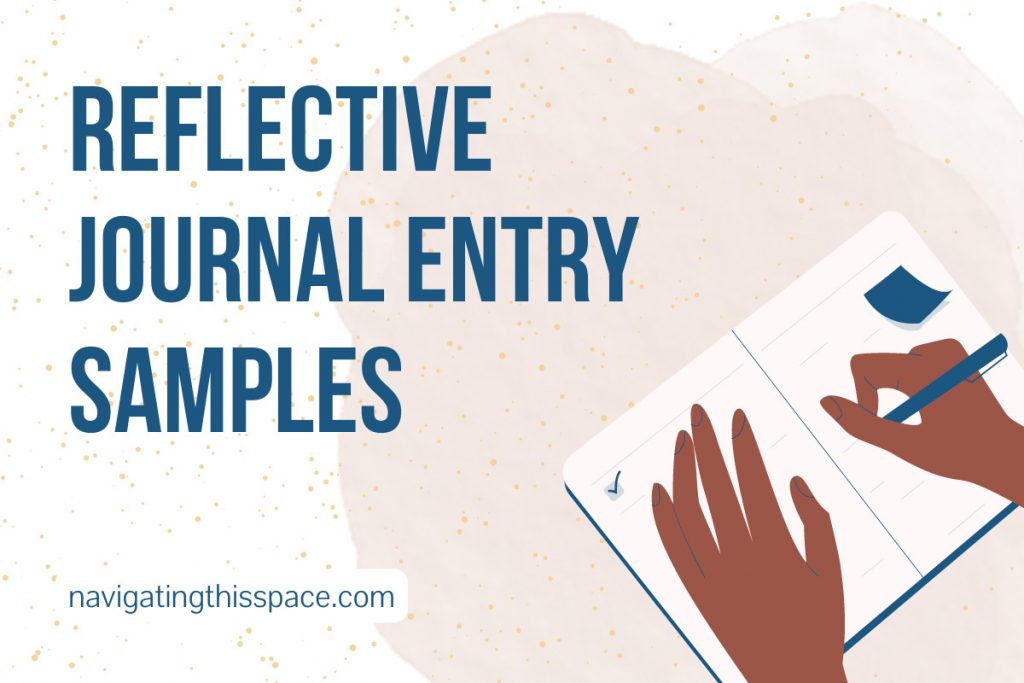
Below are two excerpts from my journal entries:
Monday:
My eyes are swollen a bit, and my head hurts. It’s all from crying myself to sleep last night. I felt like I really haven’t done anything solid with my life, and I should have done more. I guess I was evaluating it from a societal view because I know that I’ve done and accomplished a whole lot. I have to be more careful about absorbing other people’s views when viewing my life because it’s not an accurate portrayal of what I have and haven’t done.
Tuesday:
I was really productive today! I woke up feeling well-rested and got many things done that I’d been procrastinating. It feels good to be back in the flow again.
I’m smiling and I feel light. I guess all that emotion needed to be released with all my hopes and dreams. I feel like they are more impactful when accompanied by tears, so I never regret crying because clarity always follows.
Notice how the understanding of my thoughts and emotions changed from the first day to the second?
It’s all because I took the time to reflect on why I felt that way and what triggered it. I noticed that I was putting too much value on other people’s opinions, especially society’s standard way of thinking about my choices. Even though I knew better, it still affected how I saw myself.
That’s why reflective journaling is so important. It allows you to remind yourself of the power that you have over your own thoughts and emotions.
You Hold All Your Destiny Cards
You can change the way you feel by simply changing the way you think, and reflective journaling is one of the best ways to get started on that journey.
Thanks for reading! I hope this has encouraged you to start your own reflective journal.
If you already practice reflective journaling, what are some of your favorite reflective journaling prompts?
Please share them in the comments section below.
If you enjoyed reading this article, please share it with others who might benefit from it. Also, subscribe to my newsletter to get notified when new articles are published, along with valuable personal growth tips and a free e-book.
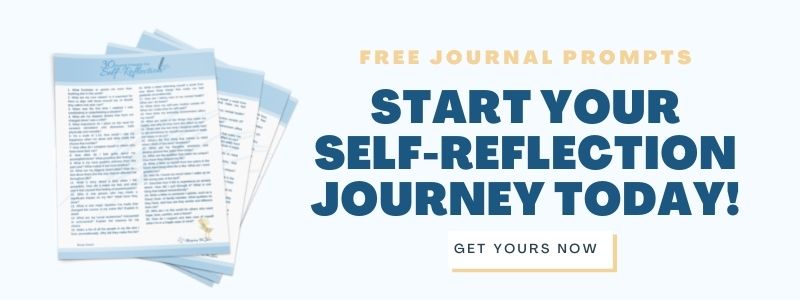
Questions You May Have
What is the purpose of a reflective journal?
A reflective journal is a tool that can be used for personal development, learning, and growth. It allows you to think more deeply about your experiences and connect the dots between what you are doing and how it affects your life.
What are the benefits of reflective writing?
Journaling is a therapeutic way to process your thoughts and feelings. Reflective writing, in particular, can be beneficial because it helps you examine your own experiences and feelings in order to better understand them. The act of writing can also help you clarify your thoughts and see them from a new perspective.
How long is a reflective journal?
There is no set length for a reflective journal. It is entirely up to you. You may prefer to write one or two pages per entry, several pages, or a few quick sentences that get straight to the point. The important thing is to write as often as you feel the need to reflect on your life.
Pin It!
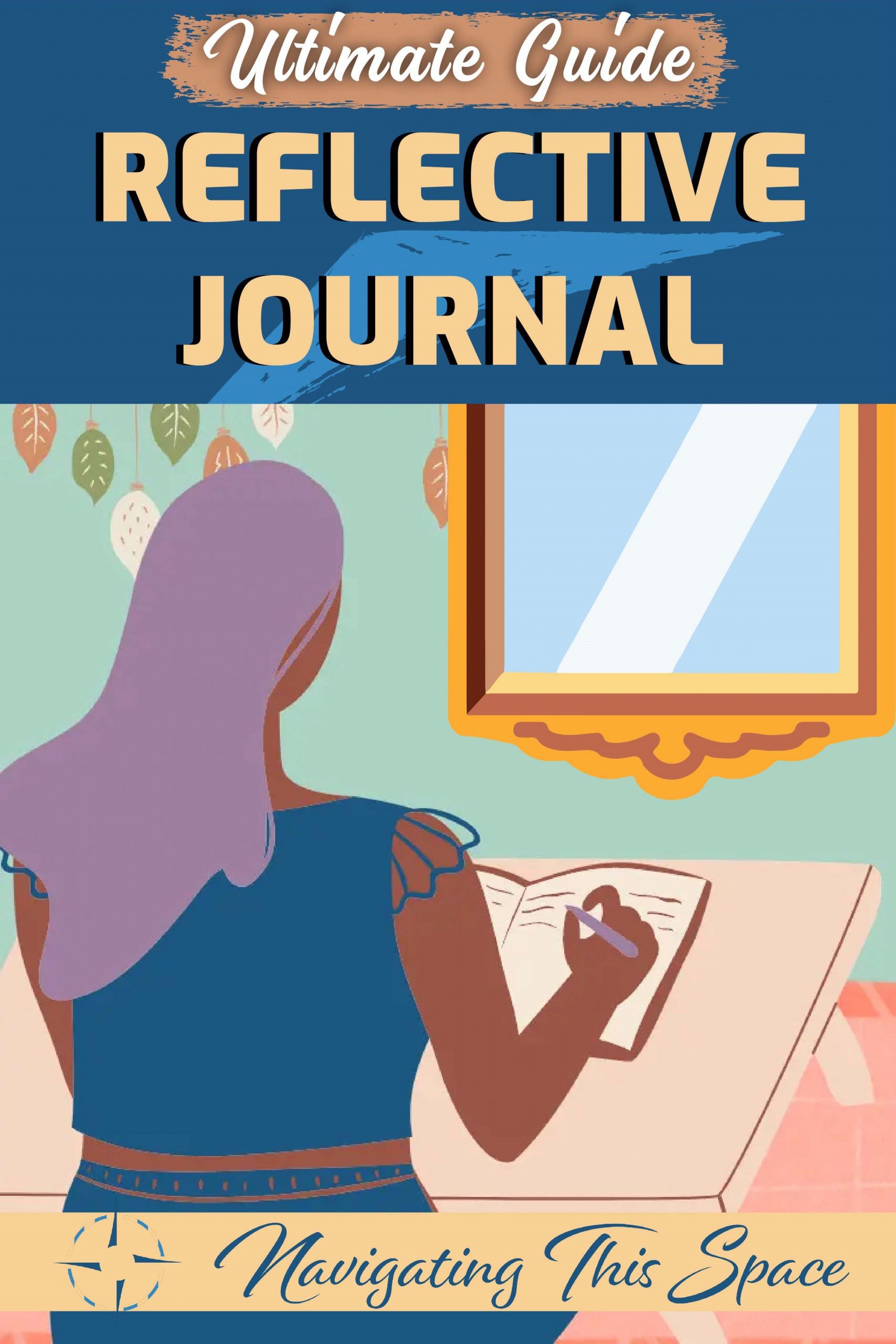
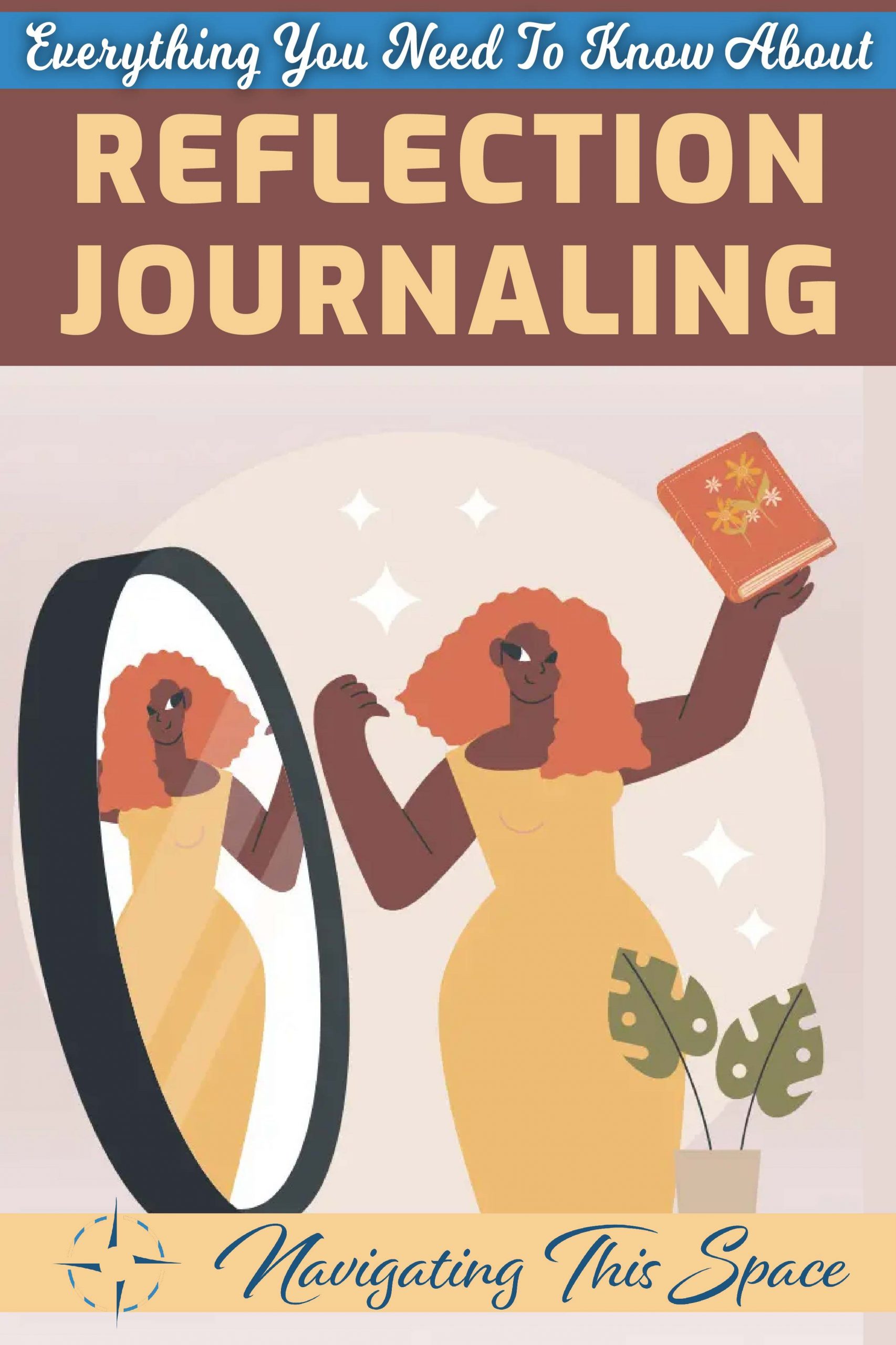

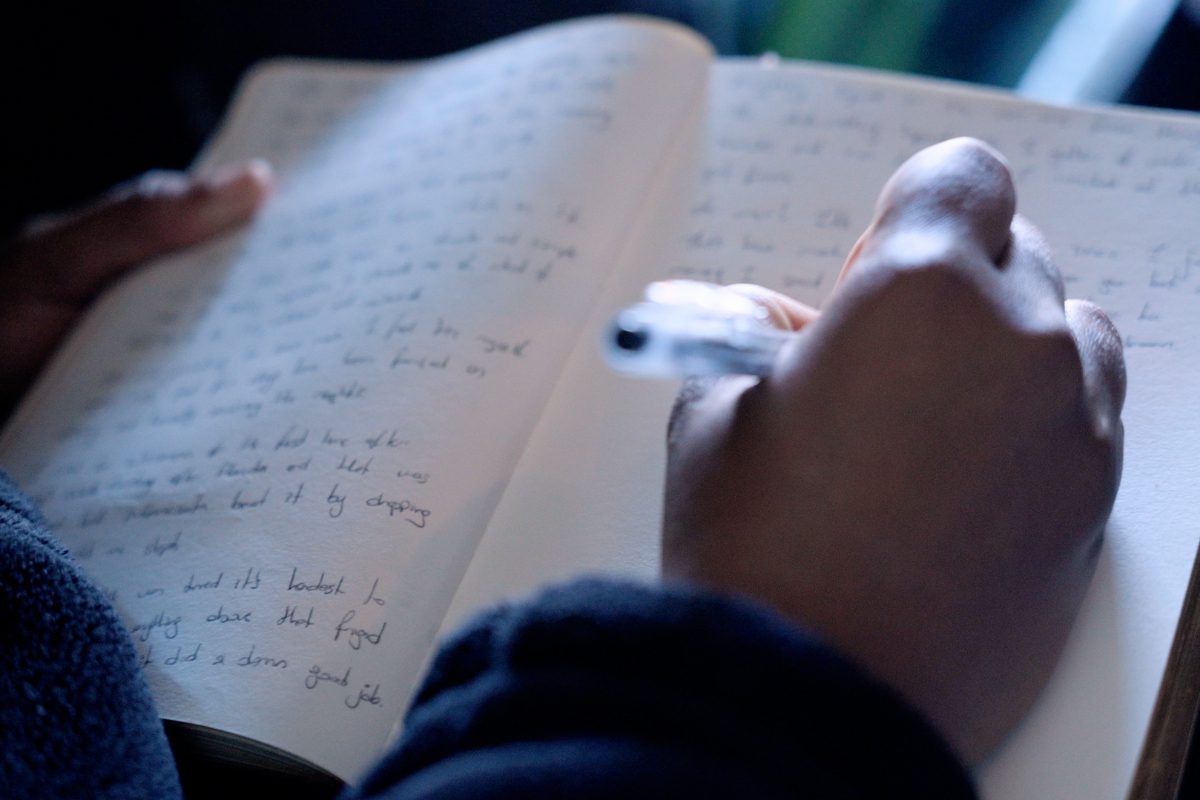
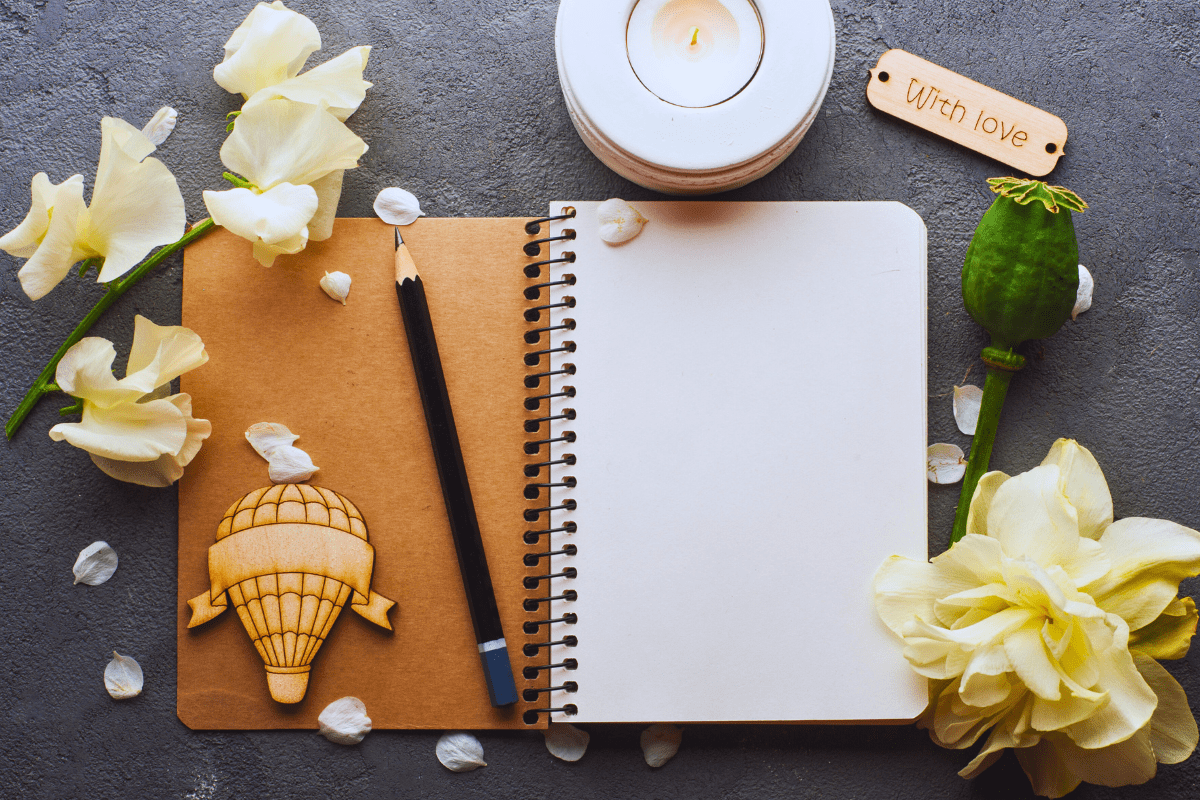

Never of thought of this before. I would love to keep a reflection journal. Very helpful..
Go for it Jeny!
I need to start one of these! Thanks for the idea
That’s a great idea Katie, do it!
I had no idea about this reflective journals! I’ll definitely start using them. Thank you for sharing this!
I’m happy I was able to teach you something new, thanks for reading and have fun with your reflective journal!